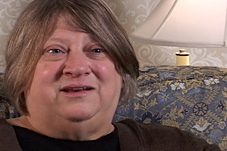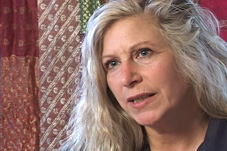 |
|
|
Videos
PO Box 2480Nevada City, CA 95959
Phone/Fax: 800-345-5530
(530-477-0701 outside US and Canada)
Email: info@cavalcadeproductions.com
 A Video Series For Disaster Responders:
A Video Series For Disaster Responders:
Psychological First Aid
Many mental health professionals volunteer their time as first responders in the wake of large-scale disasters. All too often, they’ve found that their clinical training and therapeutic instincts don’t fully apply to the circumstances in which they find themselves, and may actually render them less effective. It was in response to this problem that the psychological first aid model was developed. In this video series, leading researchers share the model they’ve helped create, one that’s designed to provide the tools and guidance necessary for clinicians to respond appropriately to the often overwhelming needs of disaster survivors. The observations of the theorists are complemented by interviews with first responders whose assignments have taken them to New York after 9/11, the Superdome after Katrina, and Haiti after its earthquake. First-person accounts from survivors of a California firestorm also are included. Presenters include Patricia Watson, Josef Ruzek, Chris Dunning, Charles Figley, and John Violanti. Released 2011. Psychological First Aid I: Goals and Guidelines Contents
Psychological First Aid II: Caring and Coping Strategies Purchase price: One DVD $150, set $250 Rental: One DVD $50, set $85 TO ORDER - phone or fax 800-345-5530 Customers who bought this video series also bought: About the Presenters Chris Dunning, PhD is a Professor and is the Coordinator of the Trauma Counseling Program of the School of Continuing Education at the University of Wisconsin-Milwaukee. She served as a Board Member and the Vice-President of the International Society for the Study of Traumatic Stress. Dr. Dunning is a Charter Member of Division 56 Trauma Psychology of the American Psychological Association. She has authored over thirty books and articles on post-traumatic interventions and has served as a trainer and consultant for a number of school districts on creating trauma-sensitive schools. Charles Figley, PhD is the Paul Henry Kurzweg Distinguished Chair in Disaster Mental Health and a Tulane University Graduate School of Social Work Professor, and director of the Traumatology Institute, recognized as the best program of its kind by the University Continuing Education Association. He has served as Fulbright Fellow and Professor of Social Work at Florida State University, where he earned the President’s Continuing Education Award and Professor of the Year from the School of Social Work Students’ Association. Dr. Figley has received dozens of awards, including his selection by the International Society for Traumatic Stress Studies (ISTSS) as the final winner of its coveted Pioneer Award, which recognizes traumatologists whose lifetime achievement substantially advanced the field. Josef Ruzek, PhD has served as an educator with the National Center for PTSD for over 15 years and holds a faculty appointment at Stanford. He has served on numerous VA educational taskforces and workgroups, assuring PTSD expertise is included in VA educational endeavors. Dr. Ruzek specializes in early intervention to prevent the development of PTSD and co-authored the influential Psychological First Aid manual created jointly by the National Center for PTSD and the NCTSN. His current efforts include disseminating evidence-based cognitive-behavioral treatments for PTSD and developing Internet-based interventions for trauma survivors. Dr. Ruzek is a member of the Board of Directors of the ISTSS, where he served as Vice President from 2006-2007. John M. Violanti, PhD is a research professor in the Department of Social and Preventive Medicine, School of Public Health and Health Professions at the State University of New York in Buffalo and a member of the University of Buffalo medical school graduate faculty. A 23-year police veteran, Dr. Violanti conducts clinical research on a host of law enforcement, health, and wellness issues for the University of Buffalo Department of Social Work and Preventive Medicine. In addition to his research, Dr. Violanti has written and edited several books relating to stress and trauma. Prior to his present work with the University of Buffalo, he was a full professor in the Department of Criminal Justice at the Rochester Institute of Technology in Rochester, New York for fifteen years. Patricia Watson, PhD has been a senior educational specialist for the National Center for PTSD, and assistant professor at Dartmouth Medical School in the Department of Psychiatry, for the last 11 years. She is a co-author of the Psychological First Aid Field Guide and Skills for Psychological Recovery Manual by the National Child Traumatic Stress Network and the National Center for PTSD, and has co-edited three books on disaster behavioral health interventions. She has co-authored numerous articles, guidance documents, training materials, and chapters on disaster mental health, resilience, and pandemic flu. She has completed an extensive literature review of the disaster interventions studies over the last 5 years, to provide guidance on Crisis Counseling Program improvement. First Responders Kate Amatruda, MFT is a Licensed Marriage and Family Therapist, an Emergency Medical Technician, a Military and Family Life Consultant and a Board Certified Expert in Traumatic Stress. She's been to Haiti, the Southeast Asia and American Samoa tsunamis, Hurricanes Katrina, Gustav and Ike, Florida tornadoes, the San Diego wildfires, and many local disasters. She specializes in pediatric populations during disasters, and the Force Protection – how to assist responders in self-care and prevention of secondary trauma in disasters where large numbers of people are impacted. She is a member of the Marin Medical Reserve Corps, of the California Association of Marriage and Family Therapists Trauma Response Network, and of Disaster Medical Assistance Team DMAT CA-6. So’Nia Gilkey, PhD is an assistant professor in the Tulane Graduate School of Social Work and a Lieutenant Commander Inactive Reserve Corp member for the National Public Health Services Corp. She is a licensed clinical social worker who has spent her career working in practice settings that focus on child and family well-being. Her areas of expertise include issues related to homelessness; traumatic experiences of children and families; psychosocial factors impacting well-being and resilience in vulnerable groups; disaster mental health in children and families; and psychosocial well-being of people living with HIV/AIDS. Ann Heinrich, LMFT is a psychotherapist in private practice in Nevada City, CA, specializing in trauma, loss/grief, and family systems issues. She has volunteered with the American Red Cross as a mental health first responder since Hurricane Katrina, working with survivors of floods and fires. Barbara Morita, PA has extensive first-hand disaster response experience as a member of a disaster medical response team based in the US. Her disaster experience includes the World Trade Center (New York, 2001), Hurricane Katrina (New Orleans, 2005), the San Diego wildfires (California 2007) and earthquake response in Haiti (Jan 2010). She also worked with the International Medical Corps in Patek, Indonesia following the tsunami. She has 30 years’ experience as a physician assistant, providing care to medically underserved communities in the San Francisco Bay Area. She currently serves as Emergency Preparedness Coordinator for the Alameda Health Consortium of Community Clinics. Dr. Toby Nelson has been an ordained Presbyterian minister for 39 years. His experience qualifies him to be called a disaster pastor and began when he was about a thousand feet away from the World Trade Center on 9/11. He is a chaplain to a federal disaster team that responds to high-risk medical events. He has served in numerous disasters including being in the Super Dome after Hurricane Katrina, and was in Haiti the day after the earthquake. He has a bachelor’s degree in psychology, a master’s degree, and a doctorate from San Francisco Theological Seminary. He recently finished writing a book on disasters titled Midnight Ethics. He is a frequent trainer in churches and disaster groups. Toby has been married to Judy for 42 years and they have one son, Erik. The Trainer’s Guide The 27-page trainer’s guide includes a summary of the program content, biographical information on the presenters, learning objectives, reproducible viewer handouts, review questions, a resource list, and the Introduction, Overview, and Core Actions sections of Psychological First Aid: Field Operations Guide (2nd Edition). |

